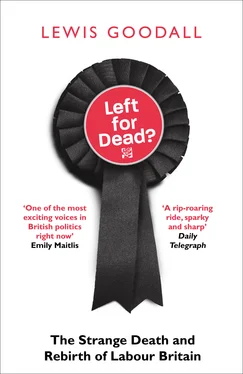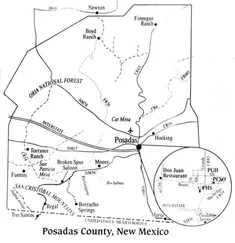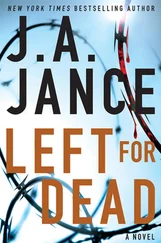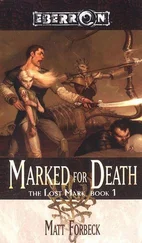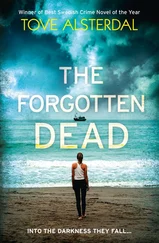Newsnight green room, and helped develop it into the book you’re holding. Iain Hunt, also of William Collins, handled the final stages of the edit brilliantly. I’d also like to thank the dozens of people, politicians, journalists, aides, activists and the rest, who spared the time to be interviewed. I hope they feel everyone, of every opinion within the Labour Party and without, has had a fair shake.
Special thanks must go to Sky News, especially the former head of politics Esme Wren and her successor Dan Williams, for giving me the space and time to write the book – and so many opportunities more generally, many of which have fed into the contents of these pages. In that vein I’m also grateful to the whole of the senior Sky News management team, especially Esme’s successor Dan Williams, Jonathan Levy, head of newsgathering, and John Ryley, the head of Sky News, for their interest and willingness to throw me new challenges. My colleagues, too, in the Millbank bureau were too many to mention, but were a never-ending source of inspiration, humour and fun. They made me, in so innumerable ways, a better journalist. After three years at Sky News, I can say without hesitation how extremely proud I have been to work for an organisation which reports politics without fear or favour and which, in my entirely impartial opinion, has the best political team in Westminster. In particular, my colleague and best friend in TV, Zach Brown, now doing his best impression of Woodward or Bernstein (or at least their teaboy) at the Washington Post . My best work – especially on matters Labour – has been with him. Long may it continue.
I’m grateful too to my friends, many of whom have contributed ideas to the book – apologies in advance if I’ve stolen them. In particular I’d like to thank Marc Kidson and James Stafford, two brilliant minds, who over the years since our Oxford days have helped shape my thinking on so many things. If you read something here that makes you think, chances are one of them had a hand in it.
As you wade through these pages, there is one man who looms large. My dear grandad, Alan. It is no exaggeration to say that without him there would be no pages to read. A more thorough tribute is reserved for him at the end – but it would still be remiss not to mention him here. His imprint, his essence, is in every bit of what you’re about to read. I only wish he could read them for himself.
Since the publication of Left for Dead , so many have written to me, tweeted me or told me face to face that they enjoyed reading about his story, that he sounded like a wonderful man. Indeed he was. And I cannot tell you how much comfort it is to me that so many people who will never have met him have read about his story. It is the story of a good man, whose life was blighted by much injustice, the story of a life less full than it should have been. It is the story of countless millions and I am just lucky that I was able to tell a small portion of his.
Lewis Goodall
London, September 2019
Son, where we’re from, you could put a donkey in a Labour rosette and it’d win.
I’m not sure there’s been a time when my family wasn’t involved in making things. Some of my earliest memories involve my grandad coming home and presenting the three- or four-year-old version of me with some samples of buttons, medals or coins that he’d helped make at the Birmingham mint. Grandad, as its works manager, got my dad a job there too. He was a lanky 22-year-old, just moved to Birmingham to be with the 17-year-old mum who had just given birth to me. They’d met at a Scarborough holiday camp a year or so before – my dad’s first ever holiday. He was from Middlesbrough, the son of a dockworker, and before then he’d barely left the town as a kid. He later said it put him off holidays for life. He didn’t have a qualification to his name, except a GCE in needlework. Alas, this didn’t help at the mint, where the only job my grandad had available was on a machine that needed a delicate approach and small fingers, which probably explained why all the other workers in the department were women. He didn’t, Grandad told me later, excel himself but he tried his best. *We all lived cheek by jowl in Erdington in north Birmingham: me, my two aunts, Mum and Dad, and my grandparents. I was the apple of my family’s eye; it probably explains why I’m, to put it charitably, unafraid of the limelight. It was a mindlessly happy existence for a little boy. But after my grandad could fiddle the figures for Dad no more, my nan phoned up the Rover plant, on the other side of the city in Longbridge, where she’d heard they needed some new workers. She asked if they had any openings for her son-in-law (just about – he’d married my mum weeks before). So we left Erdington and crossed the city to the south Birmingham suburb of Northfield, just next to the vast Rover plant. I walked past it to secondary school for five years.
For more than a decade my dad worked there nearly every working day. Each morning I’d leave for school just as he was getting in after a night shift; then, not long after I’d got home at around 4.30 p.m. Mum would instruct me (probably for the third or fourth time) to go and tell him to wake; he had to get up and eat before he started again. We were ships in the night. I didn’t mind. It was a given. Mum and Dad worked, and Dad worked more hours because he had to look after me and my younger sister. He worked incredibly hard (and still does), without complaint. These were the comforting rhythms of my earliest days.
Now I imagine it must be hard for kids in the playground to describe what their fathers and mothers do for a living. How, as a child, do you go about describing what Mummy, the management consultant, does? Or Daddy, who works as a computer software programmer? Or project managers? Or account directors? Or procurement experts?
But for many of us in Turves Green Primary School’s playground, we knew what our dads did. They worked at the Rover. They made cars. And most of them drove in the cars they had made. And I knew which bit my dad worked on: the doors. He was a welder. Today, in the increasingly unlikely event that you see a Rover on the roads, my dad probably welded it on its hinges.
I wasn’t uncommon. When I think back to my friends and classmates, so many of us had fathers and mothers who were employed on the Rover site and even more in the wider supply chain of the plant. Rover was ubiquitous, part of the bloodstream. They even sponsored our school technology labs and our curriculum, their branding and emblem proudly on display on many a classroom wall. Our families were connected through Rover socially via the ‘Austin’ Social Club, just down the road from the main site. I remember every Christmas Eve Dad taking me there for the afternoon, as he enjoyed a well-earned break and pint, played some snooker, or watched a football match. As we got older, some of my friends got their first jobs collecting glasses there a couple of nights a week. The company arranged trips to Weston-super-Mare and other seaside towns. Rover’s presence punctuated almost every aspect of life. It was, on reflection, an almost impossibly traditional working-class childhood, on the verge of being stranded out of its own time.
The plant’s quotidian certainties reassured not only our present but our futures too. I remember very clearly one lunchtime talking to another boy in my class. Like me, his father worked at the Rover. Somehow, as kids do, we started to talk about what we would do when we ‘grew up’. Even today I remember the confidence with which he talked about his own nine-year-old plans. He told me he would work at the Rover and that it would be easy; after all, his dad could easily get him a job. This was more than just the lack of imagination and naivety of a child not yet a decade old. It reflected the esteem a job there enjoyed. Longbridge was the Rover and the Rover was Longbridge.
Читать дальше
